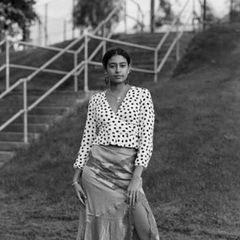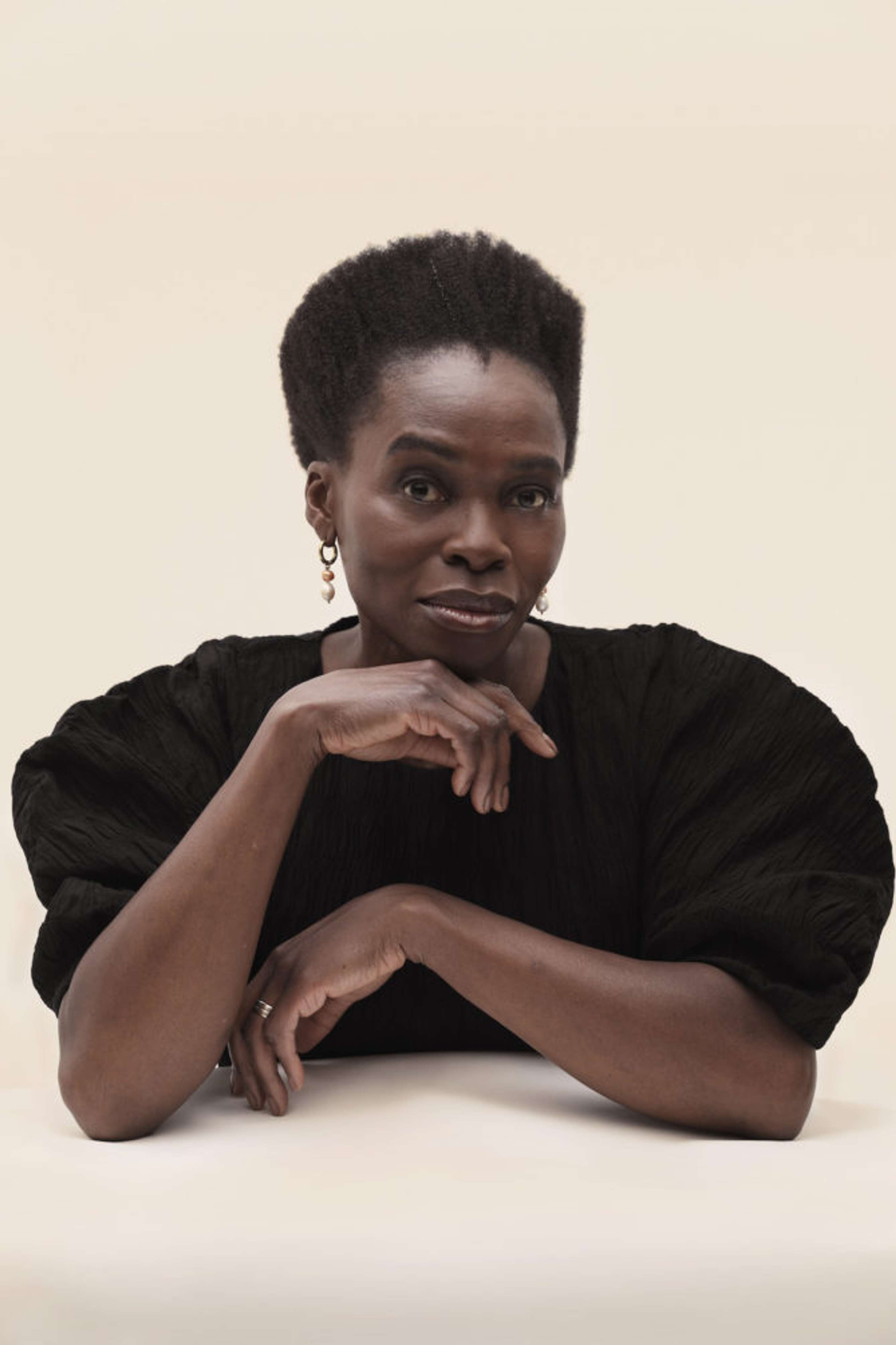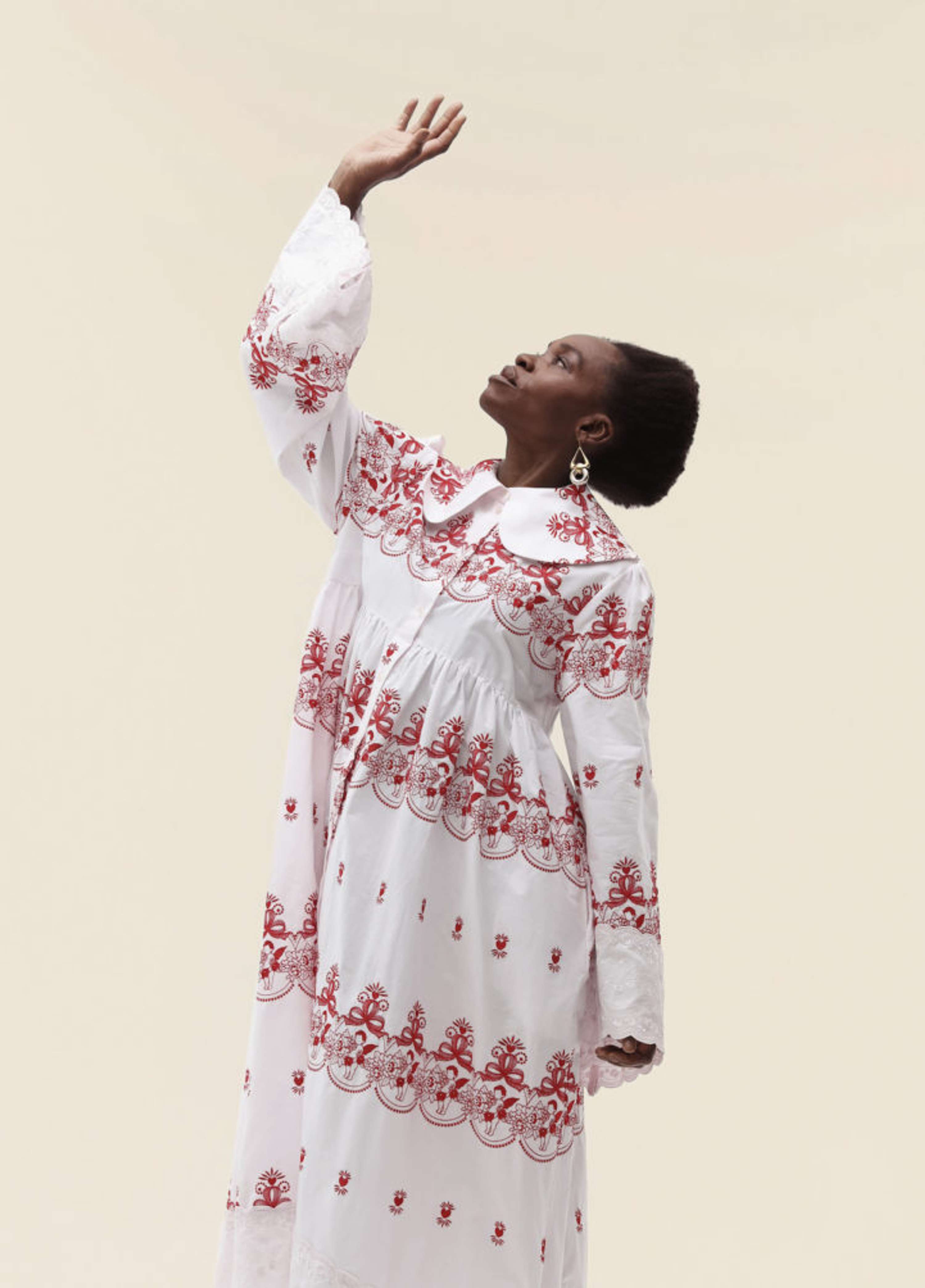I interviewed Rakie Ayola for Hunger
Welsh actor Rakie Ayola talks to Hunger about her leading role in new BBC drama 'Anthony', the future of the entertainment industry and letting go of bad energy.
Rakie Ayola became a household name through prominent roles in TV dramas such as Holby City and Doctor Who, but the Cardiff-born actor has starred in scores of TV, theatre and film productions, playing characters like Hermoine Grainger in the West End production of Harry Potter and the Cursed Child and appearing in Black Mirror’s very first episode.
Her latest starring role is in new BBC drama Anthony, now on BBC iPlayer. Directed by Jimmy Mcgovern, the 90-minute film follows the life of Anthony Walker, the Black British teenager who was murdered in a racially-motivated attack in Merseyside in 2005. Ayola plays the role of Gee, Anthony’s mother, tackling head-on the devastating complexities of loss, grief and racism in the modern world.
How has life during lockdown been for you?
I didn’t go out or leave the house for seven weeks. My husband went to the supermarket once a week and that was it. I had conversations with fellow actors, and it’s like as actors we were playing the part of someone who wasn’t allowed to leave, and we all played it really well. We’d been told to stay in, so I stayed in and did it to the nth degree.
You’re from Cardiff originally, but live in London. Where do you call home?
I’m from Cardiff but I moved to London a long time ago in 1994, five years after I left drama school. London is definitely my home, but I’m not a Londoner, I’m still very much that girl from the Cardiff council estate, in the way I meet the world, my sensibility. As I’ve got older, I’ve started to realise that more. But I do I love where I live, and I love my community. I would not have stayed in London this long if I didn’t love it here.
Covid has had a huge impact on the arts and entertainment industry. How have you been personally affected?
We’ve all been out of work. I have friends who immediately went and got jobs driving vans. A lighting designer I know said, ‘you might see me delivering your amazon parcels’. A couple of people just immediately started finding other work. I feel very grateful, as financially we’ve been ok. I thought about maybe getting a job at a supermarket or something. I felt I wanted to help or contribute in some way but the one thing I could do was stay home, be a good neighbour and stay out of the way.
You’ve set up your own production company – what have you been working on through that?
Yes, Shanti productions. We made a contemporary set version of Twelfth Night, with the original text in 100 percent Shakespeare’s words. We didn’t adapt the language at all but its set in the world that you would recognize. It’s an educational film. The cast were amazing, and what we wanted to happen with it, happened – it was picked up by schools and universities as an educational resource.
What drew you towards the production of Anthony?
Well I was sent the script by my agent so at that point it was just another script. She told me it was about Anthony Walker and I remembered the story. I read it, loved it and like most people I am a big fan of Jimmy’s work. It was a tragic story, beautifully told. But my first thought was for his mother, Gee, I wanted to know how involved she was, was she even aware? I met with the director and said “please tell me Gee Walker is in on this”, and he said, “yes, this was her idea”.
Dress / Simone Rocha // Earrings / Vintage Ellery
How did you get into the headspace of playing a real- life person? How closely did you work with Gee?
I watched lots interviews so that I could breathe her in and understand her as much as I could. One of the first things I looked at, was how vocally she’s made up of all the places she’s ever lived. She swings from her Jamaican sound, to her Coventry to her Liverpudlian sound all in one sentence. It’s so interesting and beautiful. I also watched interviews to breathe in her physicality. Also, the fact that Gee forgave the killers straight away, I had to take that in because that is the essence of who she is. She is someone who is completely rooted in her faith. She dug deeper into her faith upon Anthony’s death, and at the time she felt she would and could forgive them. She had no time or inclination to harbour or waste energy hating them. Her energy went into grieving her son and honouring his memory.
Anthony was released amidst the BLM movement, at a time when big conversations are taking place about racial injustices against black people. Do you think people are talking about the film within this context?
Yes, I do. But we want to remind people that the film was always going to be released on the week of the 15-year anniversary of Anthony Walker’s death. I think that the film and the Black Lives Matter movement has got people demanding change. I love this of course, but it didn’t happen last week or last year, so that thing they think must be done, it should’ve and could’ve been done at any point in the last 50 years. And because of BLM being reignited after the death of George Floyd a lot of people are looking in the same direction and a lot of people are asking a lot of questions – what can I do? How can I make things better? Have I been complicit? It’s a massive question a lot of people have never thought to ask themselves.
How does Anthony become part of these conversations?
Anthony becomes a part of the conversation because people go, who are those murderers? Who are they? Who are their tribe? What has led them from innocent children rolling around on the floor and kicking a ball to… I know, let’s put an icepick in the car and look out for some trouble? You cannot just say well it’s a minority. Yes, it is a minority, but they have people behind them, people who claim to love them. How does the version of love they experience lead to that? Why is killing someone a win in someone’s eyes? They lost too, the film is about loss, what Gee lost, what Anthony’s siblings lost, what the community lost but also the loss of the perpetrators. They were never going to win that moment; how can they think that is winning?
What has been your experience of being a black woman in the industry?
I’d say that because I grew up in Cardiff where there were a handful of black kids in my school, I’m so used to taking a big breath and walking into a room where no one looks like me. I’m so used to it and sometimes I think I’m too used to it. I’m used to putting on my armour and sitting there in a room with 100 people and no one else is Black. It’s only been in much later life where I have blinked and gone: hold on a minute, why is there no one to do my hair? Thirty years in and there is still no one here to do it? Or I look around and the only other Black person on set is the sound person.
I hope the industry is changing and that we see more stories written, produced, and directed by Black people… Michaela Coel immediately comes to mind.
I hope so too! The change is of course in numbers but it’s about being visible in the fabric of the institution or the company or production – that’s a bigger challenge because it’s harder to assess. I loved May I Destroy You, honestly, everything about it, it brings my heart with joy and because she’s across everything too. I don’t even know if this was deliberate but as far as I can remember no one in the show had braids, there were loads of wigs, and natural hair styles. As a Black woman you are used to going into a series and ending up with braided hair because it’s seen as the safest thing to do. Black women like wigs and they don’t have to be expensive, we just like a wig, ok?
If you could change three things about your industry today what would it be?
If I could click my fingers, there would be instant and ever-lasting respect for the Black female actors, directors, and women in the industry. The respect would be evident and by that, I mean people might say that they like and respect a person’s work, but they might not like it enough to want to pay for it. And for someone who has been around for a long time, and is really good at what they do, they might not get the job if they are seen as ‘expensive’. I want people to really get behind the experiences of other people. And if I could change something else, it would be looking at what Michaela Coel did as the norm and not the exception. This is so we can continue to see new and old stories being told from different perspectives.
Anthony is available to watch on BBC iPlayer now.



